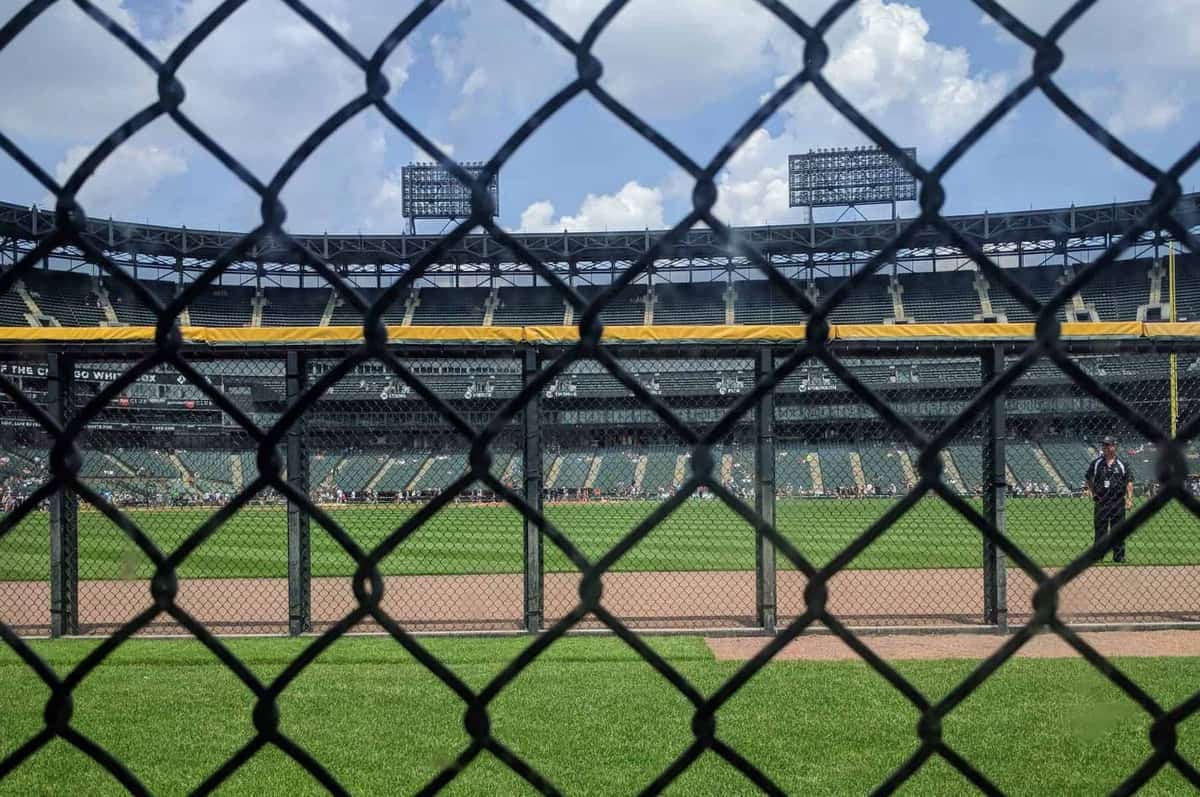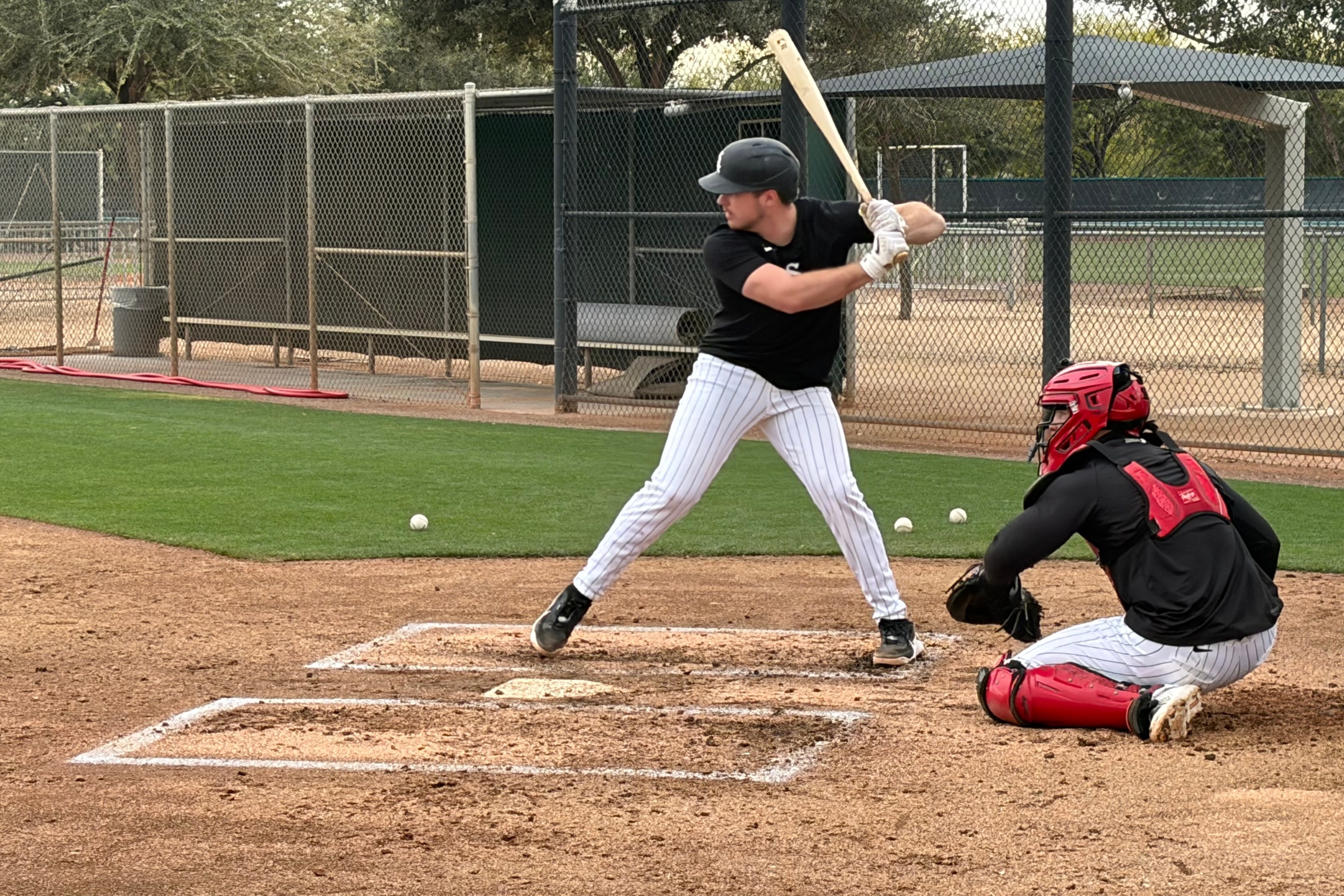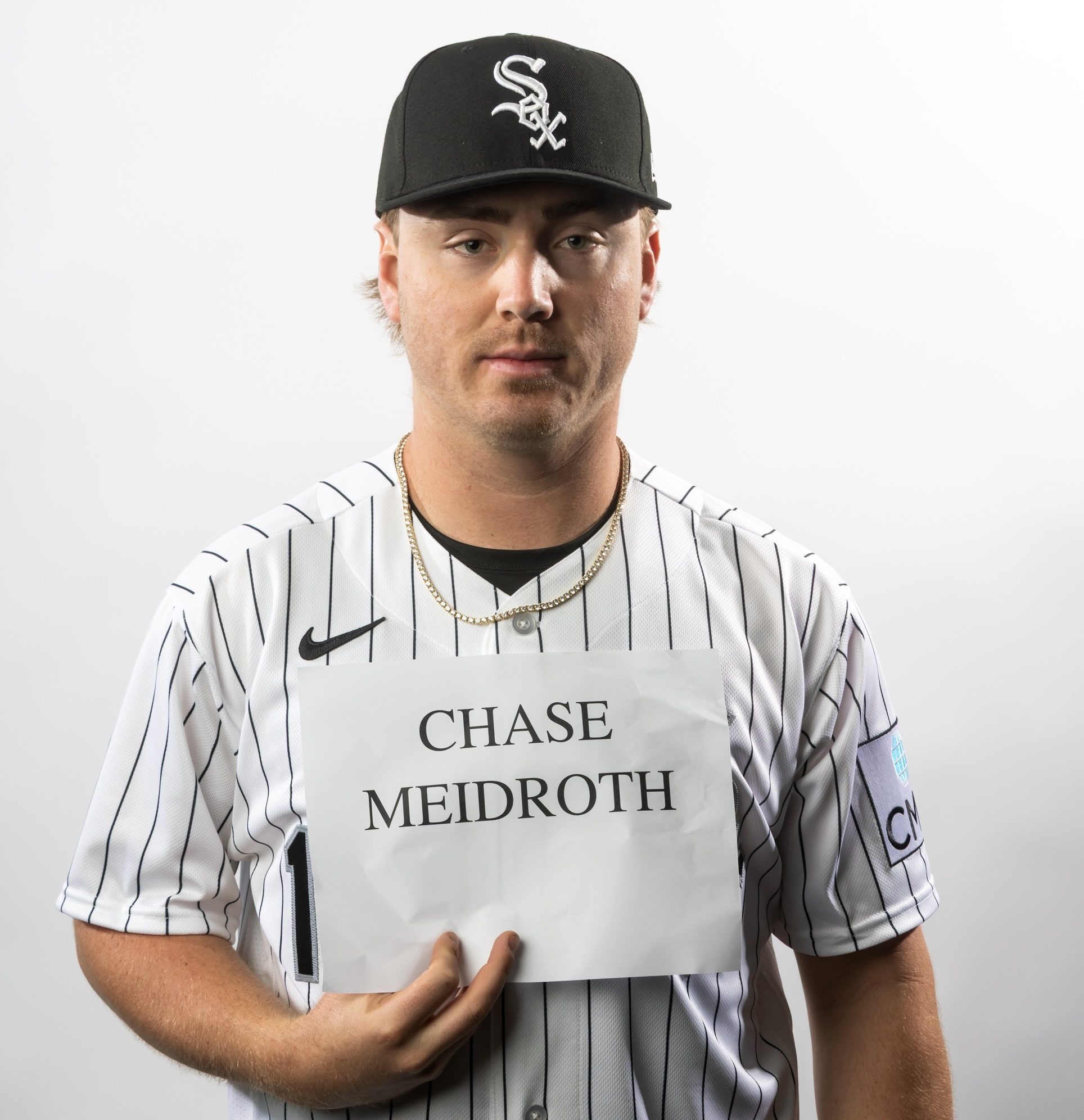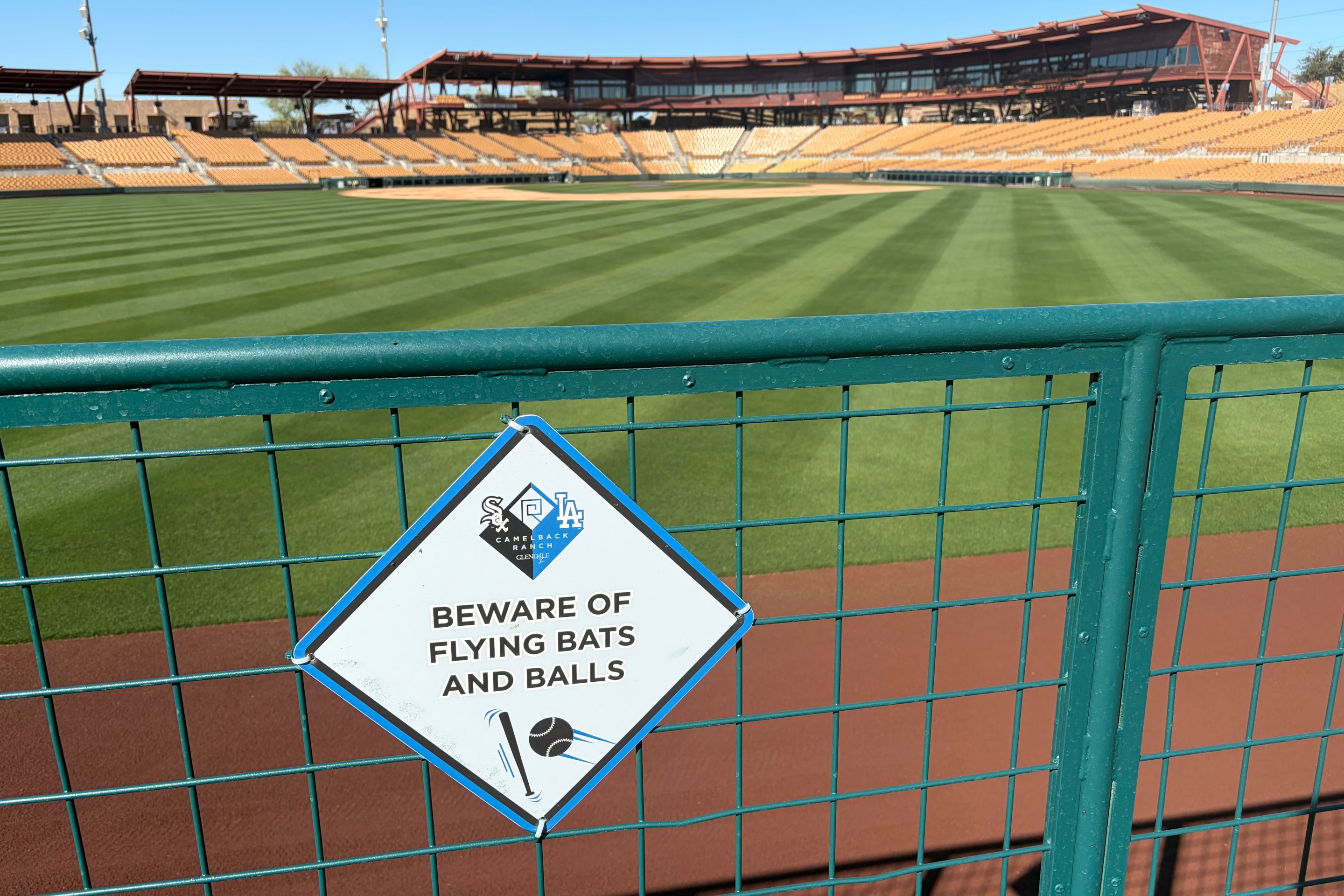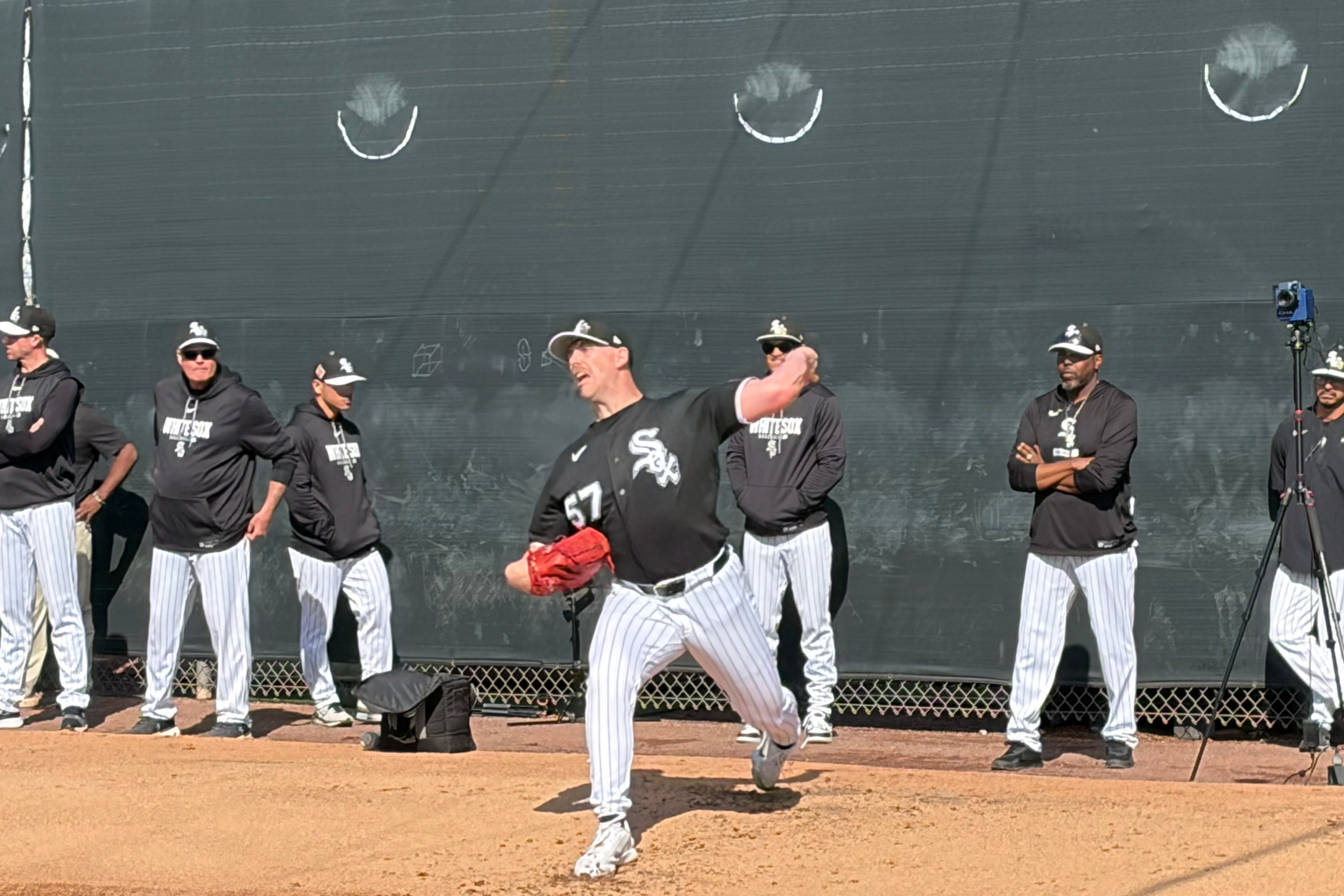Between 21 innings of baseball and Fourth of July festivities, I couldn't get to a couple things I saw during and after Wednesday's doubleheader. Thanks to the ultra-rare Friday off day, we have time to go back.
* * * * * * * * *
After Jose Abreu delivered one of the season's biggest hits in the form of a three-run walk-off homer to seal the sweep of Wednesday's doubleheader, he delivered one of the season's best quotes.
"I don't want to leave here," Abreu said through White Sox translator Billy Russo. [...]
"If I would be the owner, I would sign myself here. Hopefully, yes, I want to stay here."
Patrick did a great job of assessing the decision regarding Abreu, and it seems fairly straightforward -- his skills don't get paid the way they used to, but the White Sox can still use them for the time being, both sides seem like they want to stay the course, so something should get done. But seeing Abreu stump for an extension makes the delay a little curious, especially since Hahn put himself out there more than usual by saying about Abreu, "He’s been here throughout the early stages of this rebuild, and it’s certainly very likely that he’ll be here for the more enjoyable stages that lie ahead of us."
Maybe the White Sox -- and other teams, since midseason extensions aren't terribly common anywhere -- would rather let the season play out in the event of an injury or other career-altering event, especially since they can wield the qualifying offer fairly effectively.
On the podcast, Josh asked about the last time the Sox struck a midseason extension. I couldn't think of one off-hand, but a couple of Sox Machinists stepped up:
https://twitter.com/dailycupofjoe14/status/1146833942072483843?ref_src=twsrc%5Etfw
Freddy Garcia signed his extension shortly after the White Sox acquired him from Seattle, and it was likely a condition of the trade, since the White Sox gave up a haul for a player who would've been a rental for a non-contending team otherwise.
Mark Buehrle's situation in 2007 is a lot closer, in that it would've made a lot of on-paper sense to trade him, but emotions and intangibles made it hard to lobby for that. He received multiple random standing ovations as June turned to July because fans weren't sure if they were watching his last-ever start for the White Sox. It culminated in him setting off #HugWatch alarms before it was a hashtag on July 8, but only because he reached an extension to keep him around another four years.
On one hand, that was 12 years ago, and free agency has changed tons. On the other hand, it's the White Sox, so the guys in charge from 12 years ago are still in charge now. I'm guessing the Sox will wait until September or October to announce something, but it's only a guess. Abreu has few precedents, whether it's how he came to the country or how much he outwardly wants to play for nobody else but the White Sox.
* * * * * * * * *
When it comes to a rookie pitcher making his MLB debut, five innings and a win is a strong outcome no matter how he goes about doing it. Dylan Cease graded himself on the same curve, more or less.
“It was a good first start,” Cease said. “Obviously the command wasn’t the best, but I’ll take a win any time.”
Cease said he was able to correct some mechanical flaws after the first inning, but a couple of external circumstances also gave him an assist. Not only did he face an underwater Tigers offense, but he got a massive strike zone from home plate umpire Bill Miller in the second inning that put him in favorable counts for an 11-pitch 1-2-3 inning.
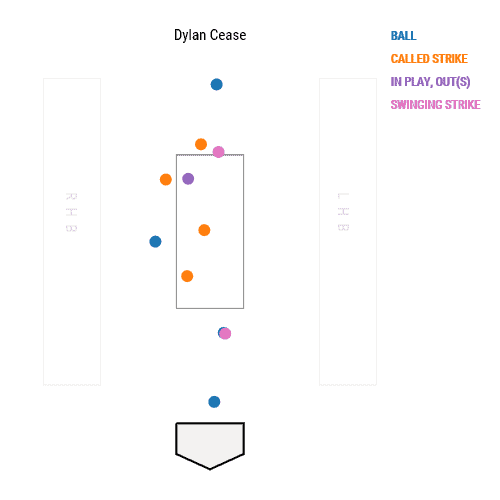
The orange dot to the left of the zone was this curveball that hooked around the plate on a 1-0 count to JaCoby Jones.

Instead of working from behind in the count, Cease pulled even, and the at-bat resulted in his first strikeout.
Similarly, the first pitch he threw to Christin Stewart wasn't a strike, and Stewart was more demonstrative about it.

While James McCann called for a pitch low and away and Cease's brain attempted to oblige, Cease's arm decided to try getting the exact same strike. Stewart, now defending a very high strike zone, tried to go after it and was unsuccessful.

Cease then locked Stewart with a slider above the knees to end the inning.
Given the way Cease settled in afterward, it's not unrealistic to think that he could've pitched past 2-0 and 1-0 counts against non-elite MLB hitters and set himself up for success in the same way. Given the way he struggled in the first inning, though, I'm inclined to think that a less favorable strike zone could have led to his start getting cut short in the third or fourth inning.
Whatever the case, part of pitching is benefiting from favorable zones, then taking advantage of them. However he got those strikes, he seized the opening and brought his pitch count closer to normal, after which he earned just about all the strikes himself, and his first MLB win at the end of it.
